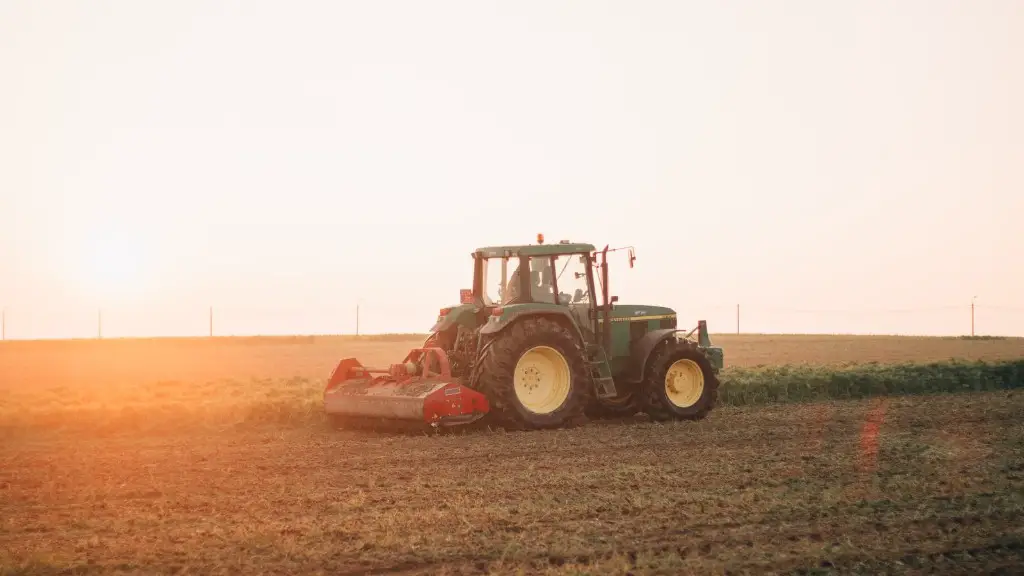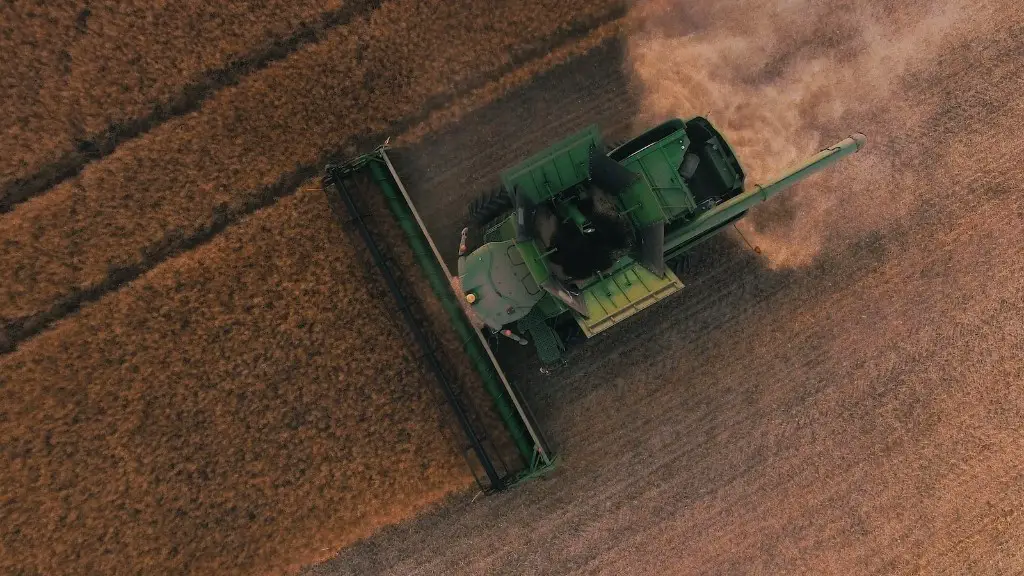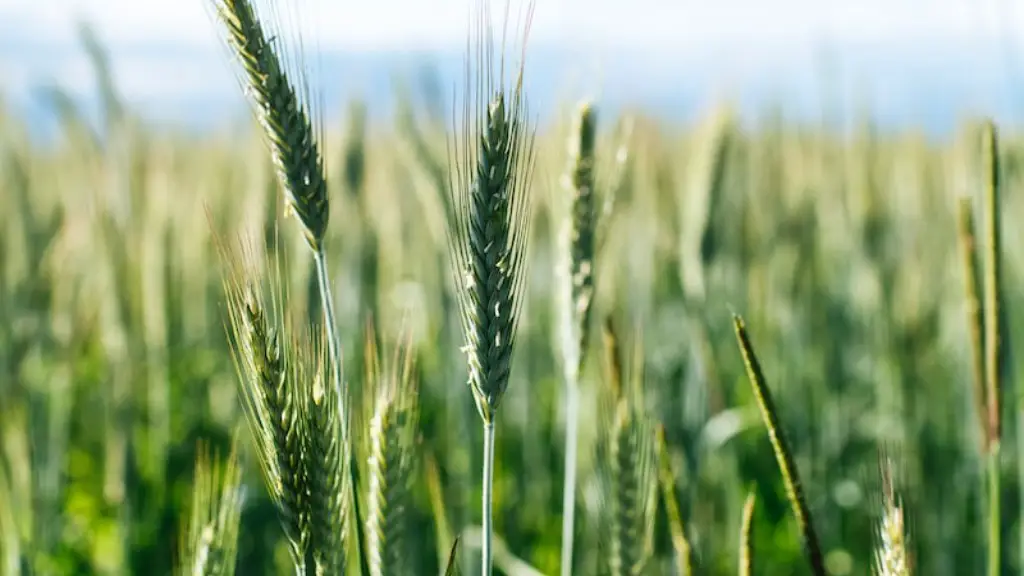Agriculture is important for many reasons. It is the foundation of most civilizations and it has been a major driving force behind human development. Agriculture allowed for the domestication of plants and animals, which led to the development of civilizations. Agriculture also allowed for the growth of cities and the rise of trade and commerce.
The development of agriculture was important because it allowed for the domestication of plants and animals, which led to the development of civilizations. Agriculture allowed for the growth of cities and the rise of civilizations. Agriculture also allowed for the rise of trade and the exchange of ideas.
Why is the development of agriculture so important?
Agriculture plays a vital role in society by providing food, habitat, and jobs. It also provides raw materials for food and other products, and helps to build strong economies through trade. Agriculture has a significant impact on society and the economy, and it is important to consider its role when making decisions about policy and investment.
Farming changed everything for early humans. They were able to produce enough food that they no longer had to migrate to their food source. This meant they could build permanent structures, and develop villages, towns, and eventually even cities. The change from a nomadic to a settled lifestyle was a huge turning point in human history, and it all started with farming.
What is the most important factor for agricultural development
Topography, soil and climate are the main physical factors affecting agriculture. Topography/relief refers to the shape of the land surface, including its relief (or elevation) and slope. It affects agriculture because it determines the suitability of land for cultivation, the degree of erosion, and the transportation challenges. Climate refers to the average weather conditions in an area, including temperature, precipitation, and humidity. It affects agriculture because it determines the growing season, the types of crops that can be grown, and the amount of water and other inputs required.
The most important aspect of the agriculture industry is that it is the source of the world’s food supply. Considering that agriculture is responsible for everything from harvesting crops to raising livestock, the agriculture industry meets the daily food needs of vegetarians and carnivores alike. Without the agriculture industry, the world would be a very different place.
How did agriculture impact us?
The agricultural sector is a significant contributor to the US economy, accounting for around 54 percent of GDP in 2021. The output of America’s farms alone accounted for $1647 billion of this total, representing around 7 percent of GDP. Agriculture, food, and related industries are vital to the US economy and provide employment for millions of Americans.
The result of increasing pressure on the land and water resources of the earth by agriculture is often land degradation (such as soil erosion and salinization), and eutrophication. Agriculture is also associated with greenhouse gas emissions.
What are three reasons agriculture is important to humans?
Agriculture is pivotal to human life as it provides food, clothing, and shelter. It is essential to our enjoyment of a higher quality of life. From the food we eat to the clothes we wear, agriculture touches every aspect of our lives. And as the world population continues to grow, so does the demand for agricultural products. As we look to the future, it is clear that agriculture will continue to play a vital role in our lives.
Agricultural development is a process that enables farmers to achieve their potential in terms of productivity and profitability. It involves the accumulation of knowledge and technology, as well as the allocation of inputs and outputs. Agricultural development is essential for ensuring food security and reducing poverty.
What are the important stages in agricultural development
The stages are: 1 Traditional Agriculture 2 Technologically Dynamics Agriculture-Low Capital Technology 3 Technologically Dynamic Agriculture High Capital Technology.
1. Traditional agriculture is the type of agriculture that has been practiced for many years and has not changed much over time. It is land-intensive and labor-intensive, and usually involves subsistence farming, where farmers grow enough food to feed themselves and their families.
2. Technologically dynamic agriculture is a newer type of agriculture that is becoming more popular. It is less land-intensive and labor-intensive, and often involves using technology to improve yields. Farmers in this type of agriculture often use mechanized equipment, irrigation, and other techniques to increase production.
3. Technologically dynamic agriculture high capital technology is the most advanced and expensive type of agriculture. It uses the latest technology to maximize production, and usually requires a large amount of capital investment. Farmers in this type of agriculture often use genetically modified seeds, precision agriculture, and other cutting-edge technologies.
1. Agriculture is the main source of raw materials for many industries.
2. It is important to international trade.
3. It plays a big role in a nation’s revenue.
4. It provides employment.
5. It’s crucial to a country’s development.
6. It can help heal the environment.
7. It goes hand-in-hand with war.
8. It’s a necessity for survival.
What are 5 important of agriculture?
The present era of farming contains dairy, fruit, forestry, poultry beekeeping and arbitrary etc. However, it could be referred to as promotion, processing, marketing, and distribution of crops and livestock products.
It is not an easy task to produce food for the ever-growing population of the world. The primary sector that produces our food is agriculture. Hence, it is the backbone of our survival. It is the oldest occupation of the human race. Agriculture not only provides us food but also clothing (cotton) and shelter (timber).
Farming has been constantly evolving and changing with the passage of time. The methods and technologies used in farming have slowly but surely become more sophisticated and efficient. The pesticides and fertilizers used in agriculture help in increasing the crop yield. The use of irrigation has made it possible to grow crops in areas where water is scarce.
The importance of agriculture can be summed up as follows:
1. Agriculture is the primary source of food for the world.
2. It is the backbone of the economy of many countries.
3. It provides employment to a large section of the population.
4. It is a source of raw materials for many industries.
Agriculture has played a vital role in human history, allowing people to produce surplus food and trade for other goods. This has led to the development of permanent villages and a more sedentary lifestyle.
What are 3 impacts from the Agricultural Revolution
The agricultural revolution was a period of significant agricultural development that occurred during the 18th and 19th centuries. It was marked by new advances in technology, such as the development of new crop strains, improved irrigation and drainage systems, and new farm equipment. The agricultural revolution had a profound impact on human society, as it led to a decline in human nutrition and a rise in infectious diseases contracted from domesticated animals. It also contributed to the growth of inequality, as those who controlled the land became increasingly wealthy, while those who worked the land remained poor.
The growth of the agricultural sector results in an immediate increase in employment opportunities for rural workers in a range of non-tradable activities. This, in turn, boosts economic activity and growth in the rural areas, which can have a positive knock-on effect on the wider economy.
What is the importance of agriculture in society?
Agriculture is essential to our way of life, providing us with food, clothing, and shelter. Most importantly, agriculture providesjobs and other benefits. Without a productive agriculture, the nation and its people would not enjoy the same quality of life.
This was a time of great change for humans as they were starting to become farmers which allowed them to produce more food than they could actually eat. The extra food provided by agriculture meant that some people did not have to spend their time gathering food and this allowed for the development of other skills. This was a time of great change for humans as they were starting to become farmers which allowed them to produce more food than they could actually eat.
Final Words
The development of agriculture was important because it allowed humans to domesticated plants and animals, which led to the establishment of civilizations. Agriculture allowed for the growth of cities and the rise of civilizations. It also allowed for the growth of food surpluses, which allowed for the development of trade and commerce.
The development of agriculture allowed for the domestication of plants and animals, which led to the development of civilizations. Agriculture allowed for the growth of cities and the rise of civilizations. Agriculture allowed for the exchange of goods and the growth of trade. Agriculture allowed for the growth of food surpluses, which allowed for the growth of populations.





